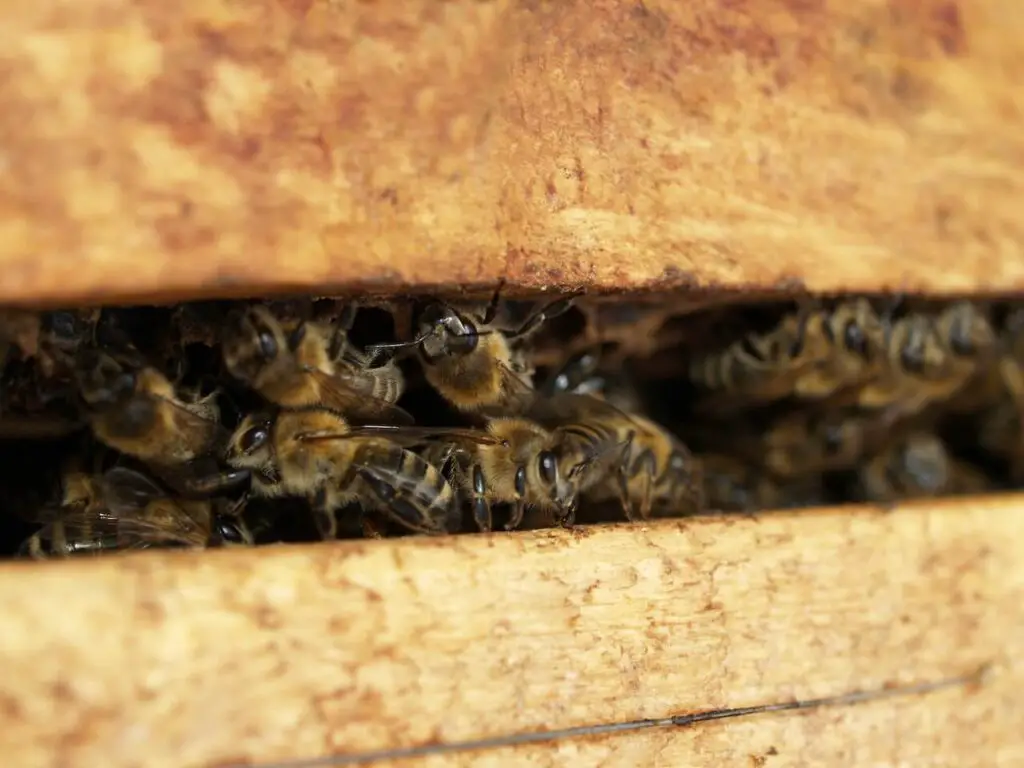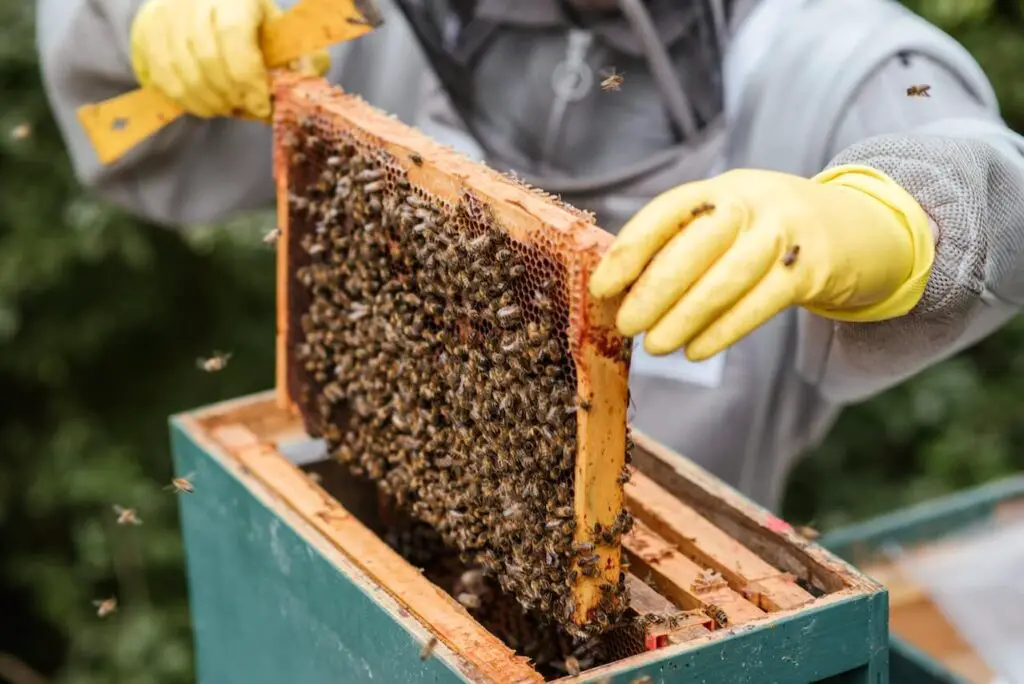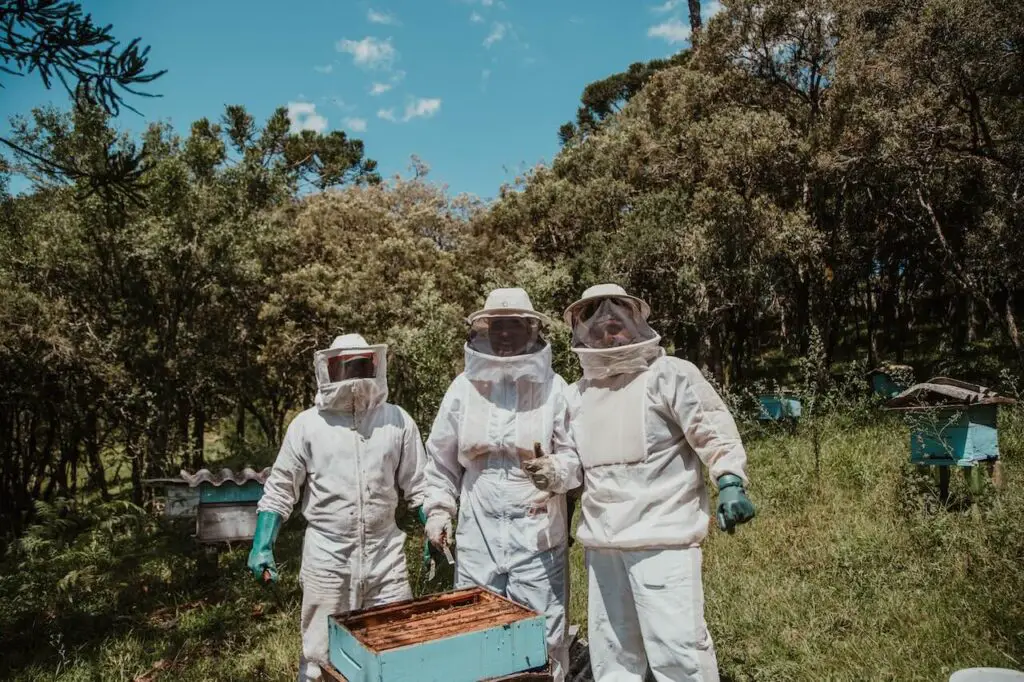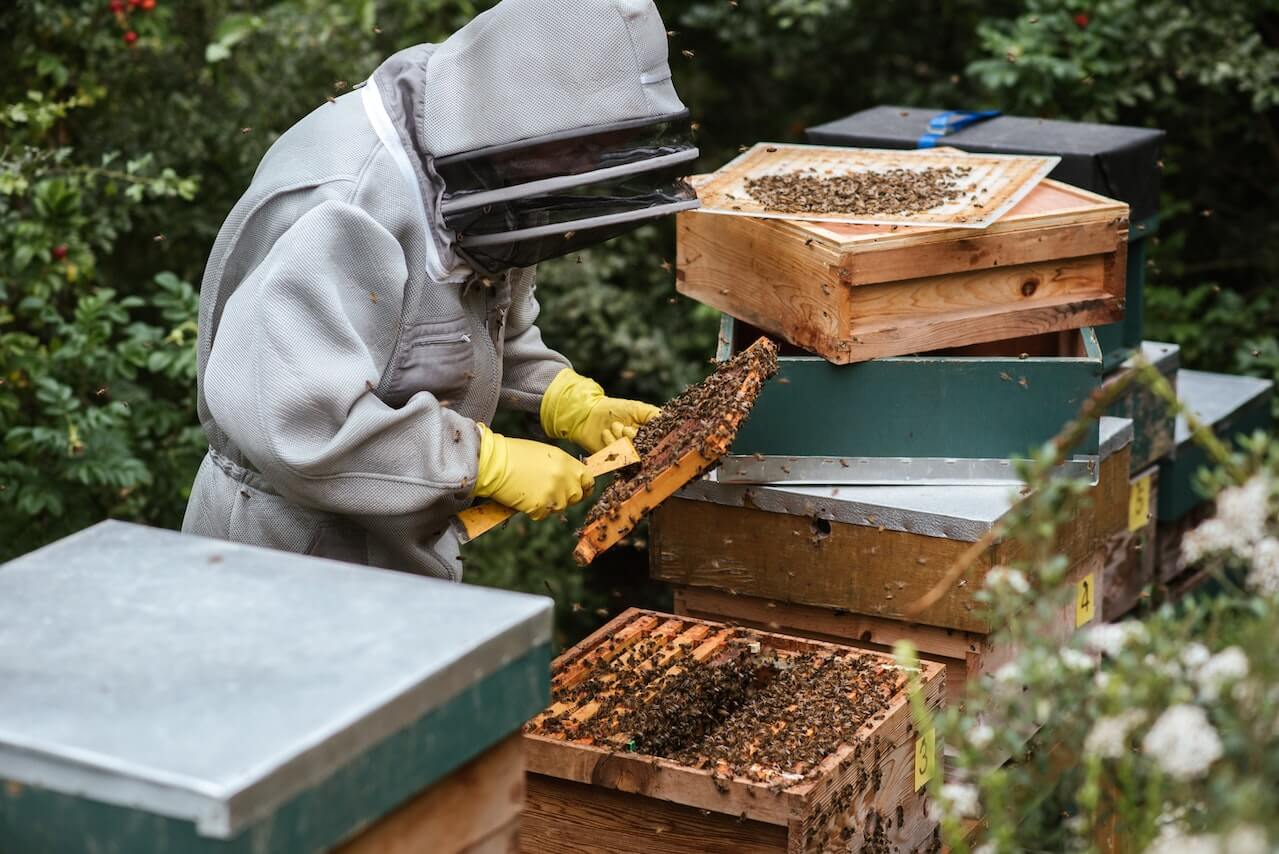Bees and Your Neighbours and The Law UK
Bees are vital to our ecosystem, playing a crucial role in pollinating plants and crops that we rely on for food. As such, many people in the UK have taken up beekeeping as a hobby or profession.
However, beekeeping can also lead to conflicts with neighbours, particularly if they feel their rights and enjoyment of their property are being negatively impacted, especially if they are getting stung regularly.
I have a phobia of wasps and bees, so I can understand how it could disturb a neighbour’s enjoyment of their garden if the hives are not correctly looked after. On the other hand, I appreciate the necessity of bees and protecting them, so it is finding the balance between the beekeepers and their neighbours.
In this blog post, I will explore the legal framework for beekeeping in the UK, how nuisance law applies to beekeeping and best practices for beekeepers to minimise conflicts with neighbours.
By the end of the blog, I hope you will know what you need to about bees and your neighbours and the law UK.
The Legal Framework for Beekeeping in the UK
In the UK there isn’t any law that protects bees but there are two relevant laws that can be applied to beekeeping. The laws are designed to promote responsible beekeeping practices that protect both bees and their neighbours.
The main laws and regulations that apply to beekeeping in the UK include:
- The Bee Diseases and Pests Control Order 2006: This order aims to prevent and control the spread of bee diseases and pests that could threaten the UK’s bee population. Beekeepers should register with their local authority and comply with certain disease prevention measures, such as inspecting hives regularly for signs of disease.
- The Environmental Protection Act 1990: This act covers a range of environmental issues, including noise, odour, and pollution. Beekeepers may be subject to this act if their hives or equipment produce excessive noise or odour that interferes with their neighbour’s enjoyment of their property.
In addition to these laws, local authorities may also have their own bylaws or regulations governing beekeeping. Beekeepers should check with their local authorities to ensure they are complying with all applicable laws and regulations.
Bees are not protected under the Animal Welfare Act 2006 due to the definition of an ‘animal’ and as bees don’t have a backbone or central nervous system, they are not covered.
I have a separate blog on when to contact environmental health about neighbour disputes that you can read here.
Beekeepers have a responsibility to ensure that their bees do not cause a nuisance or harm to their neighbours. This includes taking measures to prevent swarming, ensuring that the bees’ flight path does not interfere with neighbours’ property, and providing suitable water sources to prevent the bees from seeking water from neighbouring properties.
Beekeeping and Nuisance Law
Nuisance law in the UK covers any activity that interferes with a person’s use and enjoyment of their property. This can include noise, odours, and even visual impacts. In the case of beekeeping, potential nuisances can include bees regularly stinging, swarming, and the noise and odours associated with beekeeping.
If a neighbour beekeeper is causing you a nuisance, you should contact your local environmental health department for advice. In such a case, the environmental health officer will consider the nature and extent of the nuisance, as well as any steps taken by the beekeeper to prevent or mitigate the nuisance.
In determining whether a beekeeper’s activities constitute a nuisance, they may consider factors such as:
- The location and number of hives: If the hives are located close to neighbouring properties or there are a large number of hives, this may increase the likelihood of a nuisance.
- The behaviour of the bees: Bees that are aggressive or prone to swarming may pose a greater risk of causing a nuisance.
- The impact of the noise and odours: If the noise or odours associated with beekeeping equipment are excessive or prolonged, this may be considered a nuisance.
It should be noted that the nuisance will have to be severe for the council to be able to take action. If you are having issues then you should get advice from the council.

How To Complain about Neighbours Bees?
If you have concerns about your neighbour’s bees and have been unable to resolve the issue through communication, then your next step is to make a complaint to your local council’s environmental health department.
The following steps may be helpful:
- Document the problem: Gather evidence of the problem, such as photos or videos of the bees causing a nuisance or a health risk to you or your family. I have a separate article on how to gather evidence for a neighbour dispute that you can read here.
- Contact your local council: Contact your local council’s environmental health department and explain the problem. Provide any evidence you have gathered and ask for advice on how to proceed.
- Investigation: The council may investigate the issue to determine if any laws or regulations have been breached.
- Mediation: The council may attempt to mediate between you and your neighbour to find a mutually agreeable solution. I have an article on mediation that you can read here.
- Legal action: If the council finds that your neighbour is breaching any laws or regulations, they may take legal action to address the problem.
It’s important to note that making a complaint should be a last resort, and it’s always best to try to resolve the issue with your neighbour through communication first.
If you have tried talking to your neighbour and it hasn’t helped, you could then try sending a letter explaining your issues with the bees. If the letter doesn’t improve the situation then it would be appropriate to contact the council.
I have a blog on how to write a complaint letter to a neighbour that you can read here.
Best Practices for Beekeepers to Minimise Conflicts with Neighbours
Beekeeping is a rewarding and important activity that benefits both the environment and the community. However, beekeepers need to take steps to minimise conflicts with neighbours, as disputes can arise.
Bees and Your Neighbours and The Law UK
Here are some best practices for how beekeepers can minimise conflicts with neighbours:
- Choose a suitable location for hives
The location of hives is critical in reducing conflicts with neighbours. Hives should be located at least 10 metres away from property boundaries, facing away from neighbouring properties, and preferably in an area with a natural barrier such as a fence or hedge.
- Maintain and manage hives properly
Proper hive management is essential for minimising conflicts with neighbours. Beekeepers should regularly inspect their hives for signs of disease, maintain good hygiene practices, and ensure that the bees have enough space and food to prevent swarming.
- Provide water sources for bees
Bees need a source of water to survive, and without a suitable source, they may seek water from neighbouring properties such as swimming pools or birdbaths. Providing a water source for bees, such as a small pond or birdbath in the beekeeping area, can help prevent this problem.
- Communicate with neighbours
Communication is key to minimising conflicts with neighbours. Beekeepers should take the time to introduce themselves to neighbours and provide information on the benefits of bees, how beekeeping is conducted, and what steps they are taking to minimise conflicts.
- Address neighbour concerns
If a neighbour has concerns or complaints about beekeeping activities, beekeepers need to address these concerns respectfully and proactively. This may involve discussing the issue with the neighbour, providing additional information, or making changes to beekeeping practices.
- Be mindful of local laws and regulations
Beekeepers should familiarise themselves with local laws and regulations governing beekeeping, including any bylaws or regulations specific to their area. Compliance with these laws and regulations is critical for minimising conflicts with neighbours and avoiding legal disputes.
In summary, beekeepers can take several steps to minimise conflicts with neighbours and promote positive relationships within the community. By following these best practices, beekeepers can help ensure a positive and productive relationship with their neighbours.
The British Bee Keepers Association have further information on bees and your neighbours and the law.

FAQs About Bees and Your Neighbours and The Law UK
In the UK, it is unlikely that you can stop your neighbour from keeping bees unless there is a specific legal issue, such as a breach of the laws or regulations governing beekeeping.
However, if you have concerns about your neighbour’s beekeeping activities, it’s important to communicate with them and try to resolve the issue amicably.
In the UK, there is no specific legal requirement for how far away bee hives must be from a house. However, the general rule of thumb is that hives should be located at least 10 metres away from property boundaries and should face away from neighbouring properties to minimise the risk of conflicts with neighbours.
Additionally, it’s always a good idea to communicate with neighbours and address any concerns they may have about the proximity of the hives to their property.
Yes, bees can be kept in a residential area in the UK, as long as the beekeeper follows the laws and regulations governing beekeeping, and takes steps to minimise conflicts with neighbours.
In fact, urban beekeeping has become increasingly popular in recent years, as more people recognise the importance of bees in pollinating plants and producing honey.
However, beekeepers need to choose a suitable location for their hives, maintain good hive management practices, provide water sources for the bees, communicate with neighbours, and comply with local laws and regulations to minimise conflicts with neighbours.
If you have concerns about your neighbour’s beekeeping activities, the first step is to try to talk to your neighbour and express your concerns. They may not be aware that their bees are causing a problem, and it may be possible to find a solution that works for both parties.
If you’re unable to resolve the issue through communication, you may be able to make a complaint to your local council’s environmental health department.
However, before doing so, it’s important to gather evidence of the problem and ensure that your neighbour is not breaching any laws or regulations governing beekeeping in your area.
Bees can potentially be dangerous to dogs, especially if your dog is allergic to bee stings. If your neighbour keeps bees nearby and you’re concerned about your dog’s safety, it’s important to take steps to minimise the risk of your dog coming into contact with the bees.
This may include keeping your dog indoors when the bees are most active, ensuring that any food or water bowls are not attracting bees, and keeping an eye on your dog when outside.
Additionally, you may want to talk to your neighbour and discuss ways to minimise the risk of conflicts between the bees and your dog.

Conclusion
Beekeeping is a valuable and rewarding hobby or profession, but it is important to be aware of the legal framework and potential conflicts with neighbours.
By following best practices for responsible beekeeping and communicating with neighbours, beekeepers can minimise conflicts and promote the benefits of bees to our environment and food supply.
If you’re considering taking up beekeeping, make sure you understand the legal requirements and good neighbourly practices to ensure a positive experience for yourself and your community. You can take beekeeping course and you can find out more at The British Beekeepers Association.
I hope that this blog on bees and your neighbours (and the law) has answered your questions.





Leave a Reply